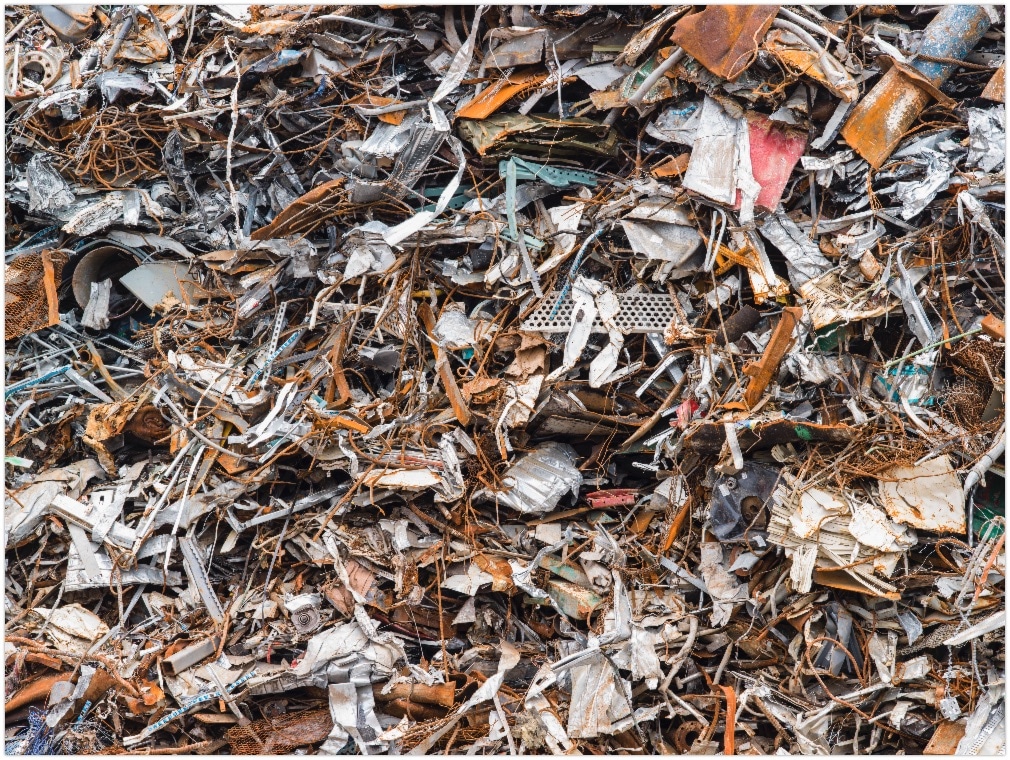Metal is one of the most abundant elements in the world. Different types of metal like steel, iron, aluminium, copper, and bronze produces packaging materials, household and commercial items, and industrial equipment.
Precious metals like gold, silver, bronze, and platinum also have various uses ranging from jewelry and electronics all the way to medical technologies.
Metal Waste Problems
Because metals offer diverse benefits and uses, the demand for this material has skyrocketed over the years. Australia is a major manufacturer of metals and minerals. Appliances, electronic gadgets, tools, automobiles and other everyday items all contain different types and amounts of metals in them. At the end of the life of these products, you’re left with metal scraps and other rubbish materials that take a lot of years to decompose.
Luckily, metals are recyclable, and you can recycle them multiple times over without altering their properties. Across the globe, steel is the most recycled material. Next to it are iron, aluminium, copper, brass, silver, and gold. In spite of the endless recycling potential of metals, they aren’t recovered much. Only about 30% of metals are reprocessed globally.
How much metal waste are we producing?
As a major metal manufacturer, we produce many metal products and materials. To give you a picture of how much metal waste we generate:
- On average, steel companies in Australia manufacture approximately 5.3 million tonnes every year, both from raw materials and recycled metals. The country also produced 1.5 million tonnes aluminium in 2017 and 1 million tonnes of copper in 2015.
- Every minute, Australia produces 350,000 aluminium cans.
How much of our metal waste is recycled?
Our metal waste recovery and recycling rates are extremely high. According to the National Waste Report 2018, Australia recovered around 5 million tonnes or 90% of metal waste for recycling in 2016–2017. Of this total amount of recovered metal rubbish, only 2% accounts for steel and aluminium cans, which are mostly collected from kerbside bins and containers.
- We recovered approximately 4.6 million tonnes of metal rubbish for recycling in 2014-2015. This accounts for an 88% recovery rate from the overall metal waste generated in the country. Metal scraps from commercial and industrial waste stream constitute 50% of the recovered material while only 25% comes from municipal and construction and demolition sectors.
- In 2015-2016, the country accumulated around 93,000 tonnes of aluminium and steel cans for recycling.
- Australia has 94 MRFs to sort household recycled metals. All of these MRFs have enough facilities and equipment to separate and recycle the metals.
- About 2.4% of the Australian population has no kerbside recycling collection for metals.
- Every tonne of steel we recycle conserves 1,131 kg of iron ore, 633 kg of coal, and 54 kg of limestone.
Metal Waste Export
Recycled metals are extremely valuable. When traded, recovered metal scraps have a higher market value than other recyclable materials. Steel scraps represent the majority of our metal waste exports, but copper and aluminium provide higher revenues due to their weight.
- In 2009-2010, we exported 1.9 million tonnes of metal waste, representing 52% of our total waste exports. While we transport approximately 74% of these materials to other countries, we only ship an estimate of 1,500 tonnes of recyclable metals to China.
- Australia exported almost 2.2 million tonnes of recyclable metals to other countries in 2016-2017. Vietnam, Indonesia, Malaysia, and China were our top largest markets for recyclable metals. Here’s a breakdown of the volume of metal waste they imported from us:
- Vietnam: 373, 439 tonnes
- India: 285, 485 tonnes
- Malaysia: 208, 254 tonnes
- China: 203, 268 tonnes
- By territory, Queensland is the largest exporter of recyclable metal waste. In 2016-2017, it exported over 700, 000 tonnes of metal scraps to foreign countries. Next to it is Western Australia with almost 600, 000 tonnes and Victoria with 430, 000 tonnes of export metals.
Conclusion
Paul’s Rubbish Removal provides fast and efficient rubbish removal services across Sydney. Our friendly and dedicated rubbish removalists can handle different kinds of rubbish in your homes or offices including scrap metal removal. No matter how big or small the job is, we always strive to do the job right and thoroughly.
Besides collecting the rubbish in your area, we also handle the sorting and recycling of your trash. Paul is your partner company in keeping the world a greener and safer place. That’s why we always make sure that our services and methods are eco-friendly. We guarantee proper waste management and thorough recycling of our collected rubbish.
If you have piles of recyclable rubbish lying around your home, and you have no idea how to deal with them, call Paul. We’ll take care of them so that you can relax and worry no more about recycling them. You can reach us by calling 0407 125 125 or sending us an email at info@paulsrubbish.com.au.







